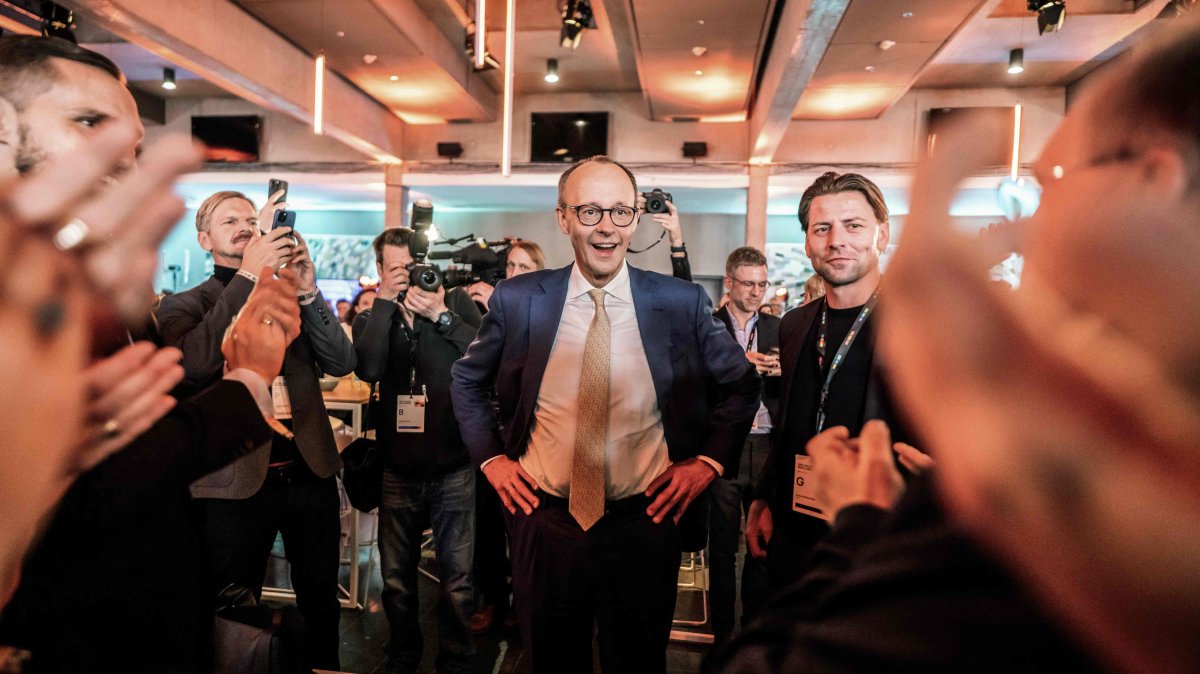Tensions Rise in German Election Amid Far-Right Surge
Germany's political landscape faces upheaval as elections approach, with debates over immigration, economic challenges, and far-right influence intensifying. Key candidates face off in unprecedented televised debates.
Published February 18, 2025 - 00:02am

Image recovered from dailysabah.com
As Germany approaches its pivotal elections, the political climate is increasingly tense and polarizing, largely due to the complexities of immigration, economic struggles, and the rise of far-right influence. The central figure in this electoral saga is Friedrich Merz, the leader of the CDU/CSU bloc, which is poised to secure a significant victory.
The election campaign has been marked by a series of intense debates where key political figures, including the current Chancellor Olaf Scholz, the Green Party's Robert Habeck, and the far-right AfD's Alice Weidel, clash over issues shaping the nation's future. In a groundbreaking move for German politics, these debates are the first to feature a four-way confrontation among leading candidates, reflecting the fragmented political landscape. These discussions have ignited public interest and are expected to sway undecided voters.
Merz, representing the conservative camp, is expected to steer Germany towards the right, abandoning the centrist policies of his predecessors. He emphasizes the critical need to address public concerns over immigration to stave off the growing influence of the AfD, which celebrates support from controversial international figures like Donald Trump and Elon Musk.
The rise of the AfD, now polling second nationwide, reflects a significant shift in German politics, challenging a system traditionally resistant to far-right ideologies due to its historical context. The AfD capitalizes on public unease about immigration following violent incidents, advocating policies of 'remigration' and tightening border controls.
Televised debates highlighted the contrasting stances on crucial topics such as immigration policies, economic strategies, and geopolitical alliances. Merz, faced with the daunting task of forming a coalition government, navigates between cooperation with parties like the Greens and the SPD while maintaining a firm stance against collaborating with the far-right.
Notably, these debates have drawn attention beyond Germany's borders, particularly from the United States, where figures like JD Vance have criticized European political dynamics. Vance's call to dismantle Germany's political 'firewall' against the far-right has been met with strong resistance from established parties in Germany, underscoring deep transatlantic differences concerning democratic principles and governance.
Further, the discussions delve into Germany's economic slowdown, exacerbated by external pressures like the competitive rise of China and potential trade conflicts with the United States. Candidates like Scholz and Habeck advocate support for high-income tax hikes to bolster the strained fiscal framework, in contrast to the AfD's rejection of such reforms, pushing instead for reduced aid to foreigners and environmental deregulation.
Foreign policy and defense, particularly related to ongoing conflicts such as the war in Ukraine, also feature prominently. The discourse reflects a consensus, excluding the far-right, on supporting Ukraine against Russian aggression, despite economic ties severed from the reliance on Russian gas—a stance that remains a point of contention in discussions about Germany's defense posture.
An underlying theme of these debates remains the broader geopolitical implications of Germany's internal political dynamics, especially in relation to its commitments within the EU and NATO in the face of shifting global alliances.
The outcome of these elections, shaped by the unresolved complexities of coalition-building and the electorate's response to the televised debates, promises to redefine not only the country's political trajectory but also its role within the broader European and international arena.
As Germany stands on the brink of a potential reorientation of its domestic and foreign policies, the world watches closely, aware that the decisions made in Berlin will reverberate far beyond its borders. The forthcoming elections thus represent not only a choice of leadership but a crucial decision point for Germany's future identity in a rapidly changing world.







